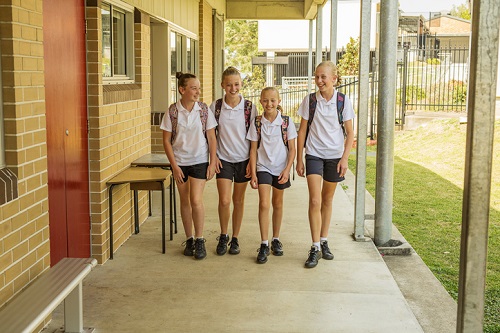
A new study from the Australian Gender Equality Council has found that girls educated in single-sex schools are equally as self-confident as boys educated in single-sex schools.
The Hands up for Gender Equality report has found that self-confidence in students from Queensland’s top single-sex schools is “gender neutral”.
The research led by Dr Terrance Fitzsimmons of the University of Queensland and based on a survey of over 10,000 students in Years 7 to 11 from Queensland’s top girls’ and boys’ schools, demonstrated that for girls in single-sex schools, there is absolutely no gender difference in this important workplace entry attribute.
Executive Officer of the Alliance of Girls’ Schools Australasia (AGSA), Loren Bridge, has welcomed the report and stated that these findings are “incredibly important” not only in terms of examining girls’ self-confidence but also because of the flow-on implications for universities and workplaces.
“The report shows what the research has been saying for decades is correct: that girls and women are less confident in mixed-sex environments such as schools and workplaces and, crucially, equally as confident as males in single-sex (female) environments,” Bridge said.
“We would argue that graduates of girls’ schools do not lose their confidence when they enter the workforce. In fact, quite the opposite.”
Bridge said girls’ schools know from their alumnae databases that their graduates are succeeding and thriving in the workplace, not only taking up male-dominated careers like engineering in ever-increasing numbers but also rising to the top of their fields.
“The evidence is clear that girls’ in single-sex schools are equally as confident as boys, so what is happening once girls leave the school gates?” she said.
The study suggests that girls and boys “are not innately less or more confident than one another”, and therefore women’s lack of confidence in the workplace is being eroded by external factors such as sexism and gender stereotyping.
This means that more emphasis should be placed on “organisations examining themselves first, rather than starting from the position of trying to fix women”.
Bridge said that naturally, the workplace is not a single-sex environment but it is also not a gender-equal environment, and more needs to be done to improve the balance for girls and women.
“If co-ed environments are responsible for girls’ and women’s loss of self-confidence then perhaps we need more all-girl schools and especially more all-girl primary schools since the research also shows that gender stereotyping around career choices starts in early primary,” Bridge said.
“We need to provide learning environments free from gender stereotyping that encourage girls to choose any career pathway including areas such as mathematics, sciences and engineering and give young women the confidence to enter male-dominated careers which are seen as the gateway to senior management and leadership roles.”
The Hands up for Gender Equality study - which also examined over twenty activities commonly undertaken by adolescents - found that the top three activities correlated to self-confidence were travel, team sport, and participation in leadership roles and leadership development.
Girls and boys derive equal amounts of self-confidence from the same activities. For example, the study found that girls in single-sex schools derive just as much confidence from participating in team sports as boys.
Bridge stated that girls’ schools have extensive extra-curricular programs, which include sports and leadership opportunities.
“Every leadership position is held by a girl, from Duke of Edinburgh to touch rugby, and community service activities - all leadership opportunities are exclusively for girls,” she said.


